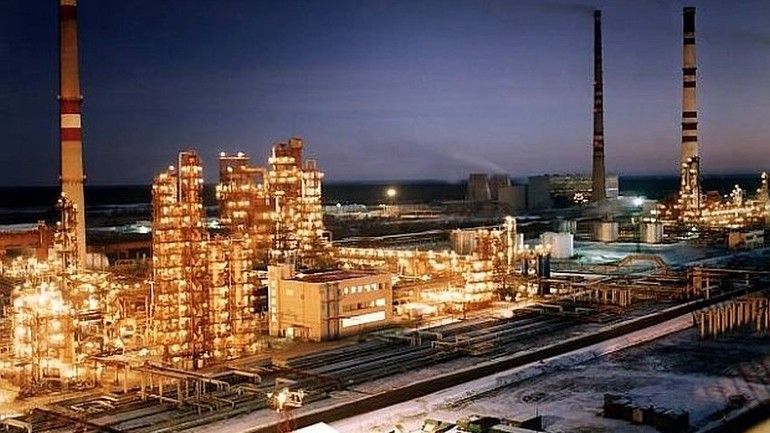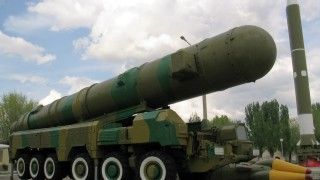- WIADOMOŚCI
- ANALIZA
Will Orlen Receive A Great Compensation For The Issues Related To The Railway Leading To The Mažeikiai Plant?
The decision made by the European Commission, referring to the claim made by Orlen, pertaining the monopolistic actions undertaken by the Lithuanian National Railways, is going to be released to the public in the autumn. Signals coming from Brussels suggest that the Lithuanian company may be facing a huge financial penalty, resulting from the fact that a section of railway between the Mažeikiai plant and the Latvian border was dismantled, which had a negative impact on profitability of the Polish refinery.The penalty may constitute a sum equivalent to even 10% of the company’s income.

Back in 2008, the Polish Orlen Group submitted a complaint to the European Commission, referring to the fact that Lietuvos Geležinkeliai (Lithuanian Railways) dismantled a 20 km section of a railway track connecting the Mažeikiai refinery and Latvia. In that way, the plant lost its most profitable export route. Back in March 2013, the European Commission initiated proceedings against the Lithuanian carrier. In the meantime, negotiations involving the representatives of the Orlen company, the Lithuanian Authorities and the freight company were going on. The aim of the process was to untie the “Gordian knot”, however ultimately the dialogue turned out to be fruitless. This course of events is not surprising, considering the fact that railway fees imposed on the Orlen Lietuva (Lithuanian daughter-company of the Polish Orlen Group) is the main source of profit for the Lithuanian Railways, which is one of the most prominent state-driven businesses in Lithuania. Not only did destroyed railway towards Latvia make it possible for the Vilnius authorities to multiply the profit gained by the Lithuanian railway operator, but it also directed the Mažeikiai deliveries towards Klaipėda, which had a positive impact on condition of the Klaipėdos Nafta company – another Lithuanian business colonized by the politicians.
The issue related to the railway section between Mažeikiai and Latvia was being gradually intensified, since the condition of the Orlen refinery has been systematically deteriorating,inter alia, due to the American shale gas revolution (which suspended the crude oil products export to the US), as well as due to the tough logistics (since the plant is located in the heart of Lithuania) or even due to the geopolitical unrest (infamous Russian pipeline which stopped its operations, once the Mažeikiai facility was taken over by the Poles). The Płock-based company, in the light of the Lithuanian authorities’ unwillingness to start a dialogue on the railway issue, tried to increase the profitability of the facility in some other ways. Number of the refinery employees was reduced, the plant was technologically and process-wise optimized. Negotiation process, the aim of which was to reduce the railway transit fees imposed by the Lithuanian Railways was started – without a positive result. The Lithuanian government was also asked for provision of other types of support – without any successes, as the government refused to offer any financial support pertaining the pipeline which would potentially connect Mažeikiai with Klaipėda. Ultimately, the situation became so complicated that some rumours emerged, according to which the Orlen facility was going to temporarily suspend or even completely shut down its operations.
However, in the second half of 2014, future of the Mažeikiai plant looked a bit brighter. The record-breaking margin imposed by the Polish fuel tycoon (highest since 2008), being a derivative of the dynamic changes happening within the global crude oil market (decreased crude oil price), had a positive impact on profitability of the Lithuanian refinery. This trend was maintained, and it lasts until now, which is proven by the data related to the second quarter of this year. According to the above-mentioned information, Orlen Lietuva’s EBIDTA has been contained in an amount of USD 134 million, the refinery’s processing capabilities were used within 14% larger scope, while the sales were increased by 17%. However, as it was stressed by the Vice President of the Orlen Company, Sławomir Jędrzejczyk, during the press conference covering the financial results achieved by the Polish petrol giant (23rd July 2015), even though the situation of the Mažeikiai plant is good, the situation is still dependent on the margin level, due to the unstable pricing situation within the crude oil market. We do not know then, at what level the profit margin would be set in the future, which forces the company to consider a variety of options for its Lithuanian refinery...
However, some hopes for permanent improvement of the situation for the Orlen Lietuva plant have emerged just recently. In January this year, Puls Biznesu outlet claimed that the European Commission submitted a notification for the Lithuanian Railways, including the remarks pertaining the conflict railway. According to the Commission, the Lithuanian railway operator breached the rules of free market competition, by removing the railway section. Meanwhile, as the Lithuanian media outlets (including Delfi.lt) informed, the dispute is close to its final stage, as the decision related to the Orlen’s claim is going to be publicized in the autumn. The Lithuanian Railways are threatened with a huge financial penalty, in an amount of even several million euros, i.e. 10% of the company’s income. To complicate the situation even more, the EU financial support for the Lithuanian railway operator, regarding the railway infrastructure within the country, has been decreased. The issue is quite serious – this is proven by the meeting of the Lithuanian President, Dalia Grybauskaitė, and the Minister of Transport, Rimantas Sinkevičius. The meeting covered the deteriorating situation in which the Lithuanian Railways are placed.
Could that mean that we may expect a breakthrough regarding the Lithuanian Railways situation, which dates back to 2008? Well, one cannot rule that out...














